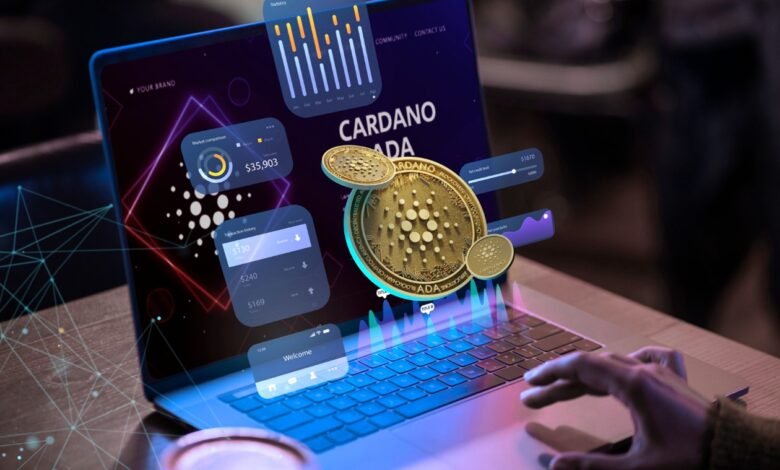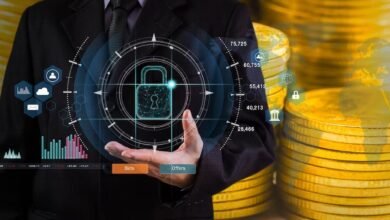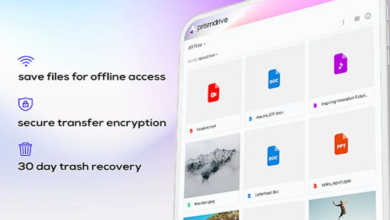
In recent years, Non-Fungible Tokens (NFTs) have taken the digital and financial worlds by storm. These unique digital assets have opened up a new frontier for creators, collectors, and investors alike. NFTs are used to represent ownership of digital or physical assets, often in the form of art, music, videos, virtual real estate, and even tweets. The allure of NFTs lies in their ability to provide digital scarcity and provenance, making them highly attractive to collectors and investors.
However, like any investment, NFTs come with their own set of risks and opportunities that potential participants should carefully consider. In this comprehensive exploration, we will delve into the world of NFTs, examining what they are, why they have gained such prominence, the associated risks, and the potential opportunities they offer to investors.
Understanding NFTs and investing
NFTs and investing: To begin, it is essential to grasp the fundamentals of NFTs. NFTs are unique digital tokens that use blockchain technology to represent ownership of a specific item or piece of content. Unlike cryptocurrencies such as Bitcoin or Ethereum, which are fungible and interchangeable, NFTs are non-fungible, meaning each token is distinct and cannot be exchanged on a one-to-one basis with another NFT. This uniqueness is what sets NFTs apart and gives them their value.
How NFTs Work
- Tokenization: The process starts when a digital or physical item is tokenized. This involves creating a digital certificate of ownership that is stored on a blockchain. The blockchain is a decentralized and immutable ledger that ensures the authenticity and ownership of the NFT.
- Ownership and Provenance: Once tokenized, the NFT represents ownership of the item and records its provenance, which is a history of its creation and transactions. This is especially important for art and collectibles, as it provides a verifiable and permanent record of the item’s origin.
- Smart Contracts: NFTs often use smart contracts, self-executing agreements with predefined rules, to automate certain processes. For instance, when an NFT is sold, the smart contract can automatically transfer ownership and distribute royalties to the creator.
- Interoperability: NFTs can be bought, sold, and traded on various NFT marketplaces. These marketplaces are platforms where users can discover, list, and purchase NFTs. Ethereum-based NFTs are the most common, but other blockchains like Binance Smart Chain and Flow have also entered the NFT space.
Read More: Unlock the Power of NFTs: A Comprehensive Guide
Key Characteristics of NFTs
- Uniqueness: NFTs are one-of-a-kind or limited-edition digital assets, making them highly desirable to collectors.
- Indivisibility: NFTs cannot be divided or split into smaller units. They are bought and sold as whole tokens.
- Ownership Rights: NFT owners typically have certain rights, such as the ability to resell the NFT, display it in virtual galleries, or use it in virtual worlds.
- Provenance: The blockchain records a complete history of the NFT, including its creation, ownership changes, and sales history.
- Interoperability: NFTs from different blockchains can be showcased or traded on various platforms.
Now that we have a foundational understanding of NFTs, let’s explore the reasons behind their rapid rise and the opportunities they present for investors.
The NFT Boom: Why NFTs Have Gained Prominence
NFTs and investing: The surge in popularity of NFTs can be attributed to several factors, each contributing to the growing interest from creators, collectors, and investors.
Digital Ownership and Scarcity
NFTs and investing: In the digital age, owning digital assets can be challenging to prove and protect. NFTs provide a solution by establishing clear ownership through blockchain technology. This is particularly appealing for digital artists, musicians, and content creators who can now sell their work with confidence that it is genuine and protected from unauthorized duplication.
Furthermore, NFTs introduce digital scarcity. Unlike the internet, where content can be copied infinitely, NFTs ensure that a specific digital item has a limited quantity, increasing its perceived value. This scarcity appeals to collectors who are willing to pay a premium for unique or rare items.
Unlocking New Revenue Streams
NFTs and investing: For creators, NFTs represent a novel way to monetize their work. Traditionally, artists and musicians relied on intermediaries like galleries, record labels, or streaming platforms to distribute and sell their art. NFTs allow creators to connect directly with their audience and retain a more significant portion of the sales revenue.
Additionally, NFTs can include royalty mechanisms in their smart contracts, ensuring that creators continue to receive a portion of the proceeds each time the NFT changes hands in the secondary market. This recurring income stream is an attractive feature for artists and content creators.
Cultural Significance
NFTs and investing: NFTs have brought the concept of ownership and value into the digital realm, giving rise to discussions about the nature of art, ownership, and authenticity. The sale of NFTs like Beeple’s “Everydays: The First 5000 Days” for $69 million at auction house Christie’s in 2021 highlighted the cultural significance of NFTs in the art world. This event marked a paradigm shift in how art is bought and sold, challenging traditional notions of ownership and provenance.
FOMO and Speculation
NFTs and investing: Fear of Missing Out (FOMO) has played a significant role in the NFT boom. Stories of NFTs selling for exorbitant amounts and celebrities joining the NFT space have fueled speculation and attracted investors looking for quick returns. This FOMO-driven speculation has led to both opportunities and risks in the NFT market.
Virtual Worlds and Metaverse
NFTs and investing: The concept of the metaverse, a virtual universe where users can interact and transact, has gained traction. NFTs are a fundamental building block of the metaverse, as they enable ownership of digital assets within these virtual worlds. Investors see potential in acquiring NFTs that may appreciate in value as the metaverse evolves and gains broader adoption.
Diversification of Investments
NFTs and investing: NFTs represent an opportunity for investors to diversify their portfolios. Traditional investments like stocks, bonds, and real estate are often correlated, meaning they move in tandem. NFTs, being a relatively new and distinct asset class, offer a degree of diversification that can help manage risk in an investment portfolio.
Risks Associated with NFT Investments
NFTs and investing: While NFTs offer compelling opportunities, they are not without their share of risks. It is essential for investors to be aware of these risks before diving into the NFT market.
Market Volatility
NFTs and investing: NFT prices can be extremely volatile. Just as they can appreciate rapidly, they can also experience significant price drops. The NFT market is still relatively young and influenced by various factors, including speculation, celebrity endorsements, and market sentiment. Investors should be prepared for price fluctuations and potential losses.
Lack of Regulation
NFTs and investing: The NFT market is currently subject to minimal regulation compared to traditional financial markets. This lack of oversight can lead to fraudulent activities, scams, and a lack of investor protection. Investors should exercise caution and conduct thorough due diligence when engaging in NFT transactions.
Counterfeits and Plagiarism
NFTs and investing: While NFTs provide provenance and authenticity for digital assets, they do not guarantee the originality of the content. Counterfeit NFTs and plagiarism can still occur, undermining the value of the assets. Investors must research the background and history of the NFT they intend to purchase to ensure its authenticity.
Intellectual Property Issues
NFTs and investing: NFTs can involve the sale of digital art, music, and other creative works. However, the ownership of the digital file may not equate to ownership of the underlying intellectual property rights. Creators and investors should be aware of copyright and licensing issues to avoid legal disputes.
Environmental Concerns
NFTs and investing: Many NFTs are minted and traded on blockchain networks that rely on energy-intensive proof-of-work (PoW) consensus mechanisms. This has led to concerns about the environmental impact of NFTs due to their carbon footprint. Some investors may have ethical concerns about participating in NFT markets with high energy consumption.
Market Saturation
NFTs and investing: As the popularity of NFTs grows, the market becomes increasingly saturated with new projects and offerings. The sheer volume of NFTs can make it challenging to distinguish valuable assets from those with limited demand, potentially leading to overinvestment in less valuable items.
Technological Risks
NFTs and investing: NFTs rely on blockchain technology, which is still evolving and subject to vulnerabilities and technical risks. Smart contracts, in particular, can contain coding errors or vulnerabilities that could lead to loss of funds or assets.
Read More:How to Make Money in the Virtual World
Conclusion
The world of Non-Fungible Tokens represents a captivating intersection of art, technology, and finance. NFTs have gained prominence for their ability to provide digital ownership, scarcity, and new revenue streams for creators. However, like any investment, NFTs come with inherent risks, including market volatility, lack of regulation, and the potential for fraud.
Investors should approach the NFT market with a thoughtful and informed strategy. Conduct thorough research, diversify your portfolio, set a budget, and be cautious of scams. Additionally, consider the environmental impact of the blockchain network on which the NFTs are minted.
FAQS
What is an NFT?
An NFT, or Non-Fungible Token, is a digital asset that represents ownership or proof of authenticity of a unique item or piece of content, typically stored on a blockchain.
How do I invest in NFTs?
To invest in NFTs, you can start by setting up a digital wallet, researching NFT marketplaces, and purchasing NFTs that align with your investment goals.
What are some popular NFT marketplaces?
Popular NFT marketplaces include OpenSea, Rarible, SuperRare, and NBA Top Shot, among others.
Are NFT investments risky?
Yes, NFT investments can be risky. Prices can be highly volatile, and the market is still relatively new and speculative. It’s essential to do thorough research and only invest what you can afford to lose.
Can NFTs be resold?
Yes, most NFTs can be resold on NFT marketplaces, allowing investors to potentially profit from price appreciation.







